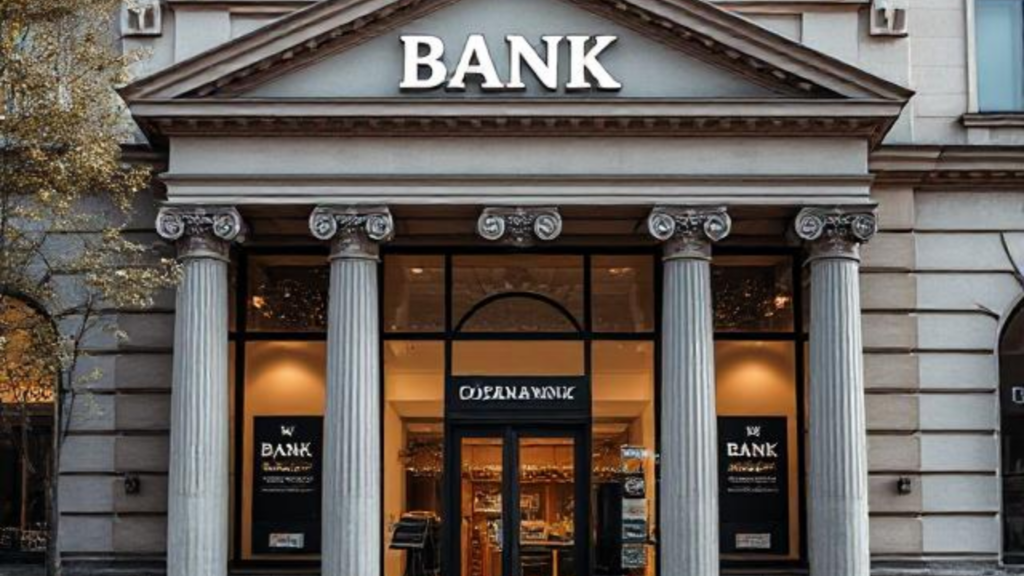
General Banking Awareness 5-6 March : Stay updated with the latest developments in banking, trade, and economic growth. City Union Bank partners with CSK for a co-branded credit card, GST collections rise 9% in February, and WTC Mumbai collaborates with YES Bank to support MSME exporters. Bank of Baroda secures ISO 22301:2019 certification, reinforcing operational resilience. Meanwhile, India and the EU set a year-end deadline for a historic Free Trade Agreement. Read more on crucial financial and policy updates shaping India’s economic landscape.
General Banking Awareness: City Union Bank, CSK tie up for co-branded credit card
- City Union Bank (CUB) has partnered with Chennai Super Kings (CSK) to launch a co-branded credit card for cricket enthusiasts ahead of the IPL season.
- Dubbed a “passion credit card,” it fills a gap in the credit card market by combining banking benefits with exclusive CSK-related perks.
- The card comes in three variants – Mass, Platinum, and Signature, each featuring CSK’s yellow theme and lion logo.
- Cardholders get bonus reward points on CSK merchandise, match tickets, and events, along with exclusive access to fan meet-ups and discounts.
- CUB offers a fully digital onboarding process, targeting both existing and new customers, including salaried professionals.
- The initiative aims to attract new customers while strengthening ties with its current customer base.
Learn Along:
About City Union Bank
- Founded: 1904
- Headquarters: Kumbakonam, Tamil Nadu
- Chairman: M. Narayanan
General Banking Awareness: GST mop-up rises 9% to ₹1.83-lakh crore in February
- GST collections in February crossed ₹1.83 lakh crore, marking a 9% rise and reflecting improved consumer sentiment.
- This is the 12th consecutive month where collections exceeded ₹1.7 lakh crore, despite February having only 28 days.
- Net GST collections, after refunds, showed an 8.1% year-on-year increase, with domestic revenues rising by 10.2% to ₹1.42 lakh crore and import revenues up by 5.4% to ₹41,702 crore.
- The breakup includes ₹35,204 crore from Central GST, ₹43,704 crore from State GST, ₹90,870 crore from Integrated GST, and ₹13,868 crore from compensation cess.
- Large manufacturing and consuming states like Haryana, U.P., Maharashtra, Tamil Nadu, MP, and Karnataka saw 10-20% growth, while states like Telangana, Gujarat, Assam, AP, and Odisha showed only 1-4% growth.
- Experts highlight robust domestic GST growth compared to import-related collections, attributing it to the Atmanirbhar Bharat policies.
- The government is also focusing on resolving inverted duty structures, ensuring smooth tax administration and easing working capital pressures for businesses.
- The steady rise in GST collections indicates that India’s economy remains resilient despite global economic challenges.
General Banking Awareness: WTC Mumbai launches Export Conclave with YES Bank
- World Trade Center (WTC) Mumbai and YES Bank organized the Export Conclave on February 21, 2025, to facilitate interactions between MSMEs, government bodies, regulatory agencies, and financial institutions.
- MSMEs contribute 45% to India’s exports but face challenges like limited access to collateral-free credit, compliance issues, and lack of awareness about government schemes.
- Textile Commissioner Roop Rashi highlighted the need for bank funding in the textile sector, which employs 5.4 crore people and aims to grow from USD 172 billion to USD 350 billion by 2030.
- Joint DGFT Praveen Kumar urged MSMEs to benefit from digital initiatives like online E-BRC, digital export licenses, and Advance Authorisation.
- ECGC General Manager Arpita Sen advised exporters to mitigate risks through export insurance and understand foreign import regulations to avoid shipment detentions.
- WTC Mumbai and YES Bank signed an MoU to support MSMEs with credit access and trade facilitation services.
- WTC Mumbai Chairman Dr. Vijay Kalantri emphasized that to reach USD 1 trillion in exports, MSMEs’ financial and operational challenges must be addressed.
- WTC Mumbai, leveraging 320 WTCs in 90 countries, aims to be a global growth platform for MSME exporters beyond just hosting trade shows.
Learn Along:
About Yes Bank
- Headquarters: Mumbai
- CEO: Prashant Kumar
- Founded: 2004
General Banking Awareness: Bank of Baroda receives the ISO 22301:2019 BCMS Certification from British Standards Institution
- Bank of Baroda has been awarded the ISO 22301:2019 Business Continuity Management System (BCMS) certification by the British Standards Institution (BSI), reinforcing its operational resilience and risk management capabilities.
- This certification recognizes the bank’s ability to maintain uninterrupted services during disruptions and effectively manage risks.
- ISO 22301:2019 is an international benchmark for business continuity management, ensuring swift recovery and minimal operational disruptions.
- The achievement strengthens Bank of Baroda’s reputation as a resilient financial institution, committed to seamless service delivery.
- BSI, founded in 1901, is the UK’s national standards body and a leading certification provider for management systems and standards.
- The certification is widely adopted by banks and financial institutions to ensure operational continuity and resilience in crisis situations.
- This is the best General Banking Awareness topic.
Learn Along:
About Bank of Baroda
- Founded: 20 July 1908
- Headquarters: Vadodara, Gujarat
- Chairman: M.R. Kumar
General Banking Awareness : India, European Union set year-end deadline for trade deal
- India and the EU aim to conclude their long-pending Free Trade Agreement (FTA) by 2025, as announced by PM Modi and EU Commission President von der Leyen.
- Talks include a new strategic security and defence partnership, replacing the 2020-2025 Strategic Roadmap, ahead of the next EU-India summit.
- The FTA, which began in 2007 and was revived in 2022, faces hurdles, especially over tariffs on European cars and alcohol, despite the political push for completion.
- If concluded, it would be the world’s largest trade deal, covering Investment Protection and Geographical Indications Agreements, but differences remain.
- The EU insists on tariff reductions for key exports, warning that without commitment on cars, the FTA may not materialize.
- Geopolitical factors, including U.S. trade policies, Russia-Ukraine conflict, and Europe’s need to ‘de-risk’ from China, are shaping the negotiations.